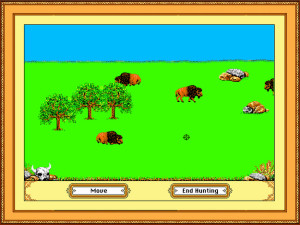 Remember that old Heinz ketchup slogan “good things come to those who wait”? In case you’re not as old as I am, it was popular when ketchup was still regularly sold in glass bottles and you had to hit the 57 on the bottle in order to make the ketchup pour out without waiting until everyone else was finished eating before you started because it was so damn slow.
Remember that old Heinz ketchup slogan “good things come to those who wait”? In case you’re not as old as I am, it was popular when ketchup was still regularly sold in glass bottles and you had to hit the 57 on the bottle in order to make the ketchup pour out without waiting until everyone else was finished eating before you started because it was so damn slow.
I think they could have simplified it by saying “be patient, asshole. The fries can wait and so can you” but perhaps that’s why I’m not in marketing.
Anyway.
Getting started on your pioneer project is just like waiting for the ketchup to come out of the bottle. It’s a slow, arduous process that makes you want to throw something. You have to exercise a tremendous amount of patience, even when you hit the 57 to make it go faster. You can’t rush it because the reward at the end is so worth it.

I read somewhere that it took the pioneers who traveled the Oregon Trail roughly a year to save up the money and supplies they needed to travel. A year! That’s a long time, especially when you’re waiting to move–literally–on with your life. It’s necessary, though, because you need to make sure you have everything in place to make the transition as quick and with as little pain as possible. You need to be prepared for all the emergencies and situations, and when you get there, you want to reap the rewards as soon as you can.
I’m sure that for those guys, that year moved like an eternity. Like it was never going to be the time to go. At least that’s how I felt starting this project. It took me months before I had the scope and nature of the project outlined, gathered most of the supplies I needed (I still don’t have them all), and it was the right time to start. However, unlike traveling the Oregon Trail, you don’t need to wait for the perfect time. You can start your pioneer project at any time–today, even–by doing a few of these things:
- Use natural light. Don’t get me wrong. I love my electricity. I do not, however, love high electric bills. Besides, pioneers didn’t have electricity in their homes. You can practice living like a pioneer by opening blinds, curtains, window shades, or whatever you have and allowing the natural light to come into your home during the day rather than turning on the lights.
- Air dry your clothes. Again, without electricity, pioneers couldn’t use washers and dryers. So they air dried their clothes. You can do this, too, by hanging a clothing line in your backyard or, if you don’t want to freak out the neighbors with your underwear, set one up in your house (preferably in a room without carpeting. That will just cause a dreadful smell). You can use a drying rack, too.
- Make your own butter. Pioneers churned their own butter. I don’t really know where to get a butter churn so I went searching for more modern directions. Although I haven’t done this yet but based on the instructions I found, it doesn’t seem like it’ll be too difficult. I will not be doing it by hand, however. I will use my stand-up mixer. But if you do this and do it by hand, let me know. I’d love to hear how it went.
- Bake your own bread. Pioneers also made their own bread (probably to go along with their churned butter), and they did so often. So you can spend an afternoon making some loaves of bread. If you don’t have a bread machine–I don’t–there are dozens of recipes for making bread in your oven. Or, if you’re too scared of starting with a loaf of bread, you can follow the recipe below for drop biscuits. It’s a start!
- Sew something. If you’ve read a Little House book, then you know how much time the Ingalls women spent sewing things. Curtains, doll clothes, dresses, quilts, shirts…they sewed it all. Which is why learning to sew is high on my list of skills to tackle for this project. But making the aforementioned items takes a skill level I don’t have. So I’ve been practicing by making napkins, sewing ripped seams and missing buttons, and working on 9 square quilts for my daughter’s dolls. If that’s not your speed, you can always go to the craft store and pick out a cross stitch to work on.
I have 5 more suggestions that you can do to start living more like a pioneer today, so look for those next week!
[yumprint-recipe id=’2′]